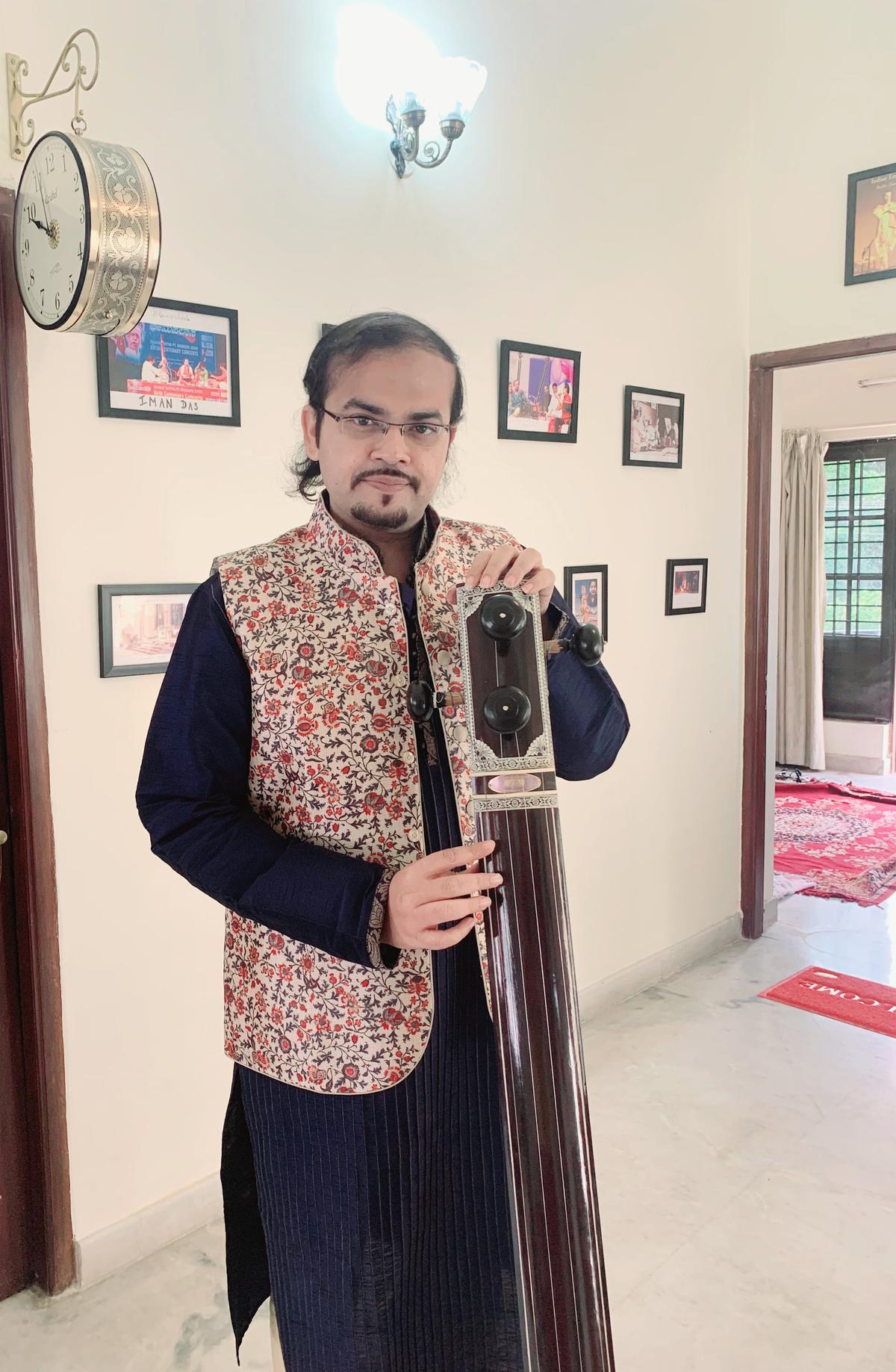Vocalist Iman Das’ most recent initiative is the Morning Mantra. “This project was conceived to enhance one’s spirituality by practicing yoga while listening to a morning raga,” says Iman Das.
Once while touring Germany, Iman was performing for a predominantly German-speaking audience in Stuttgart. “I thought they may not appreciate our slow tempo vilambit compositions, so I announced I would take up madhya and dhrut compositions that were quicker-paced.”
“Five Germans immediately came up to me and requested vilambit pieces saying, ‘We enjoy meditating to slower tempo songs. That was when the idea of raga and meditation took root,” says Iman, adding, “Over the years I have researched on morning ragas and evening melodies that are meditative in nature. With my raga-and-meditative exercises in European countries garnering exceptional responses, I wanted to replicate the idea with a twist that brings in yoga, ragas and meditative workouts in India.”
Swami Tadyuktanandaji, in charge of the Ramakrishna Vidyarthi Mandiram, a unit of Ramakrishna Math, Basavanagudi, has agreed to be part of the Morning Mantra exercise. He will speak on the values inherent in a combination of culture, music and meditation. Iman Das will focus on melody and morning ragas while yoga instructor, Jonaki Ghosh Thomas, would help participants perform yoga kriyas.
“The two-hour programme will be a new melodic exercise to gauge the response of people,” says Iman, who is planning similar online exercises to reach wider audiences.
Milestone year
The year 2023 was a particularly good one for Iman, beginning with a multi-city release of his co-authored book, One Nation, One Music (Shubhi Publications, New Delhi). The book based on Iman’s explorations in melody for the last two decades, looks at the historical aspects of ragas and their development in different gharanas (schools), the similarities and the possibilities of Carnatic and Hindustani squaring off into a single stream, among others.
The same year, Iman received the National Award — Basavaraj Rajguru Yuva Kalakar 2023 from the Karnataka Government. He performed at the prestigious KK Murthy Festival at Chowdiah Memorial Hall, participated in the Gwalior University’s World Music/Yoga day and opened a branch of his Omkar Music Academy in Kolkata that teaches classical, Western and world music.
Influence of mentors
Hindustani music progressed with an artistic blend of several streams. “If meditative dhrupad gayaki maintained the true vedic tradition, khyal evolved under the Moghul influence. Music had no defined religious boundary, its patrons and practitioners brought about their melodic storyline,” he says.

Iman was a student of the authentic taleem (schooling) of Patiala Gharana from Pt. Kalyan Basu, a direct disciple of Bade Ghulam Ali Khan of the Patiala Kasoor gharana. “As a guru he was the first to tweak my food intake; he often said ‘Singing requires the right nutrients’.”
Musical ideologies, like other forms of art are passed on from one generation to the next. “Hindustani classical music comprises various gharanas each with a set of features that are developed through masters and disciples, as part of the guru-shishya parampara,” explains Iman Das, who also learnt from Pt. Ajay Chakrabarty (a student of Munawwar Ali Khan) and Pt. Shantanu Bhattacharya.
Over the years, Iman has evolved and his collaborations with Anup Jalota, Amit Kumar, Pt. Jayateerth Mevundi and Pt. Venkatesh Kumar among others, have received much appreciation for their imaginative brilliance in presentation. “I imbibed the art of classical presentations from all my gurus and as my perceptive abilities increased, every kind of melody drew me closer. I felt the urge to make music my raison d’ etre,” says Iman, who was acknowledged by WNYR New York Radio in 2018 in the World’s Top Emerging Artistes category for the special song /Sanskrit shloka ‘Maa Meera.’

If Das is able to take up a serious morning raga like Basant Mukhari at the Panchakshari Gawai Ashram Jatra fest in Gadag, he is equally at ease composing songs or exploring paths to creating new ragas. Swarna-Deshi (Charukesi and Desh) is one such of his recent pieces that saw Anup Jalota joining him in enjoying the newly explored scale during a musical meet.
Das also lent his voice for two tracks in the Bollywood film Qala for music composed by Amit Trivedia and Sagar Desai. His video Jab Tak Rahe Saans, to raise funds for oxygen cylinders, won the Best Concept Award at the North Karnataka Short Film Fest.
Bengaluru as base
Brought up in Kolkata, Iman was attracted by Bengaluru after his music received a good response from the IT city that “embraces new aspects of culture and music.” Das says he would often visit the city, but during the last decade he decided to make it his home as his Omkar Music Academy here began to grow in strength.
At the Academy, lessons cover all systems of world music, and classical Hindustani in all its sub-genres are taught and given expression. In both his offline and online classes, Iman has guided hundreds of students, many of whom are already performing.
“Among my student performers are Ankita Kundu who has made a name for herself in the Kannada playback industry, Asmita Banerjee is soon to perform in Benaras and Bangalore, and 12-year old Smayam Gautam who came to me as a child of six! At Omkar Music Academy, we notate world genres through our seven notes of Indian classical music, to broaden our students horizons.”
Morning Mantra will be held at Sobha Lakeview Clubhouse, Green Glen Layout Cultural Association, Bellandur on February 25, 6-30am. For registrations call 9900302306 or mail iman.das1@gmail.com